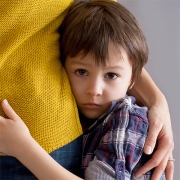
Article at a Glance

Article at a Glance

Article at a Glance


Article at a Glance

Article at a Glance

Article at a Glance

Article at a Glance

Article at a Glance

Article at a Glance There is no “right” level of activity. It depends largely on your child and your family. Children who are overscheduled will show symptoms like depression, anxiety, irritability, restlessness, and over tiredness. Don’t let external pressures influence how much your child is involved in. Focus on what is right for your child. … Continue reading “Is Your Child Overscheduled?”